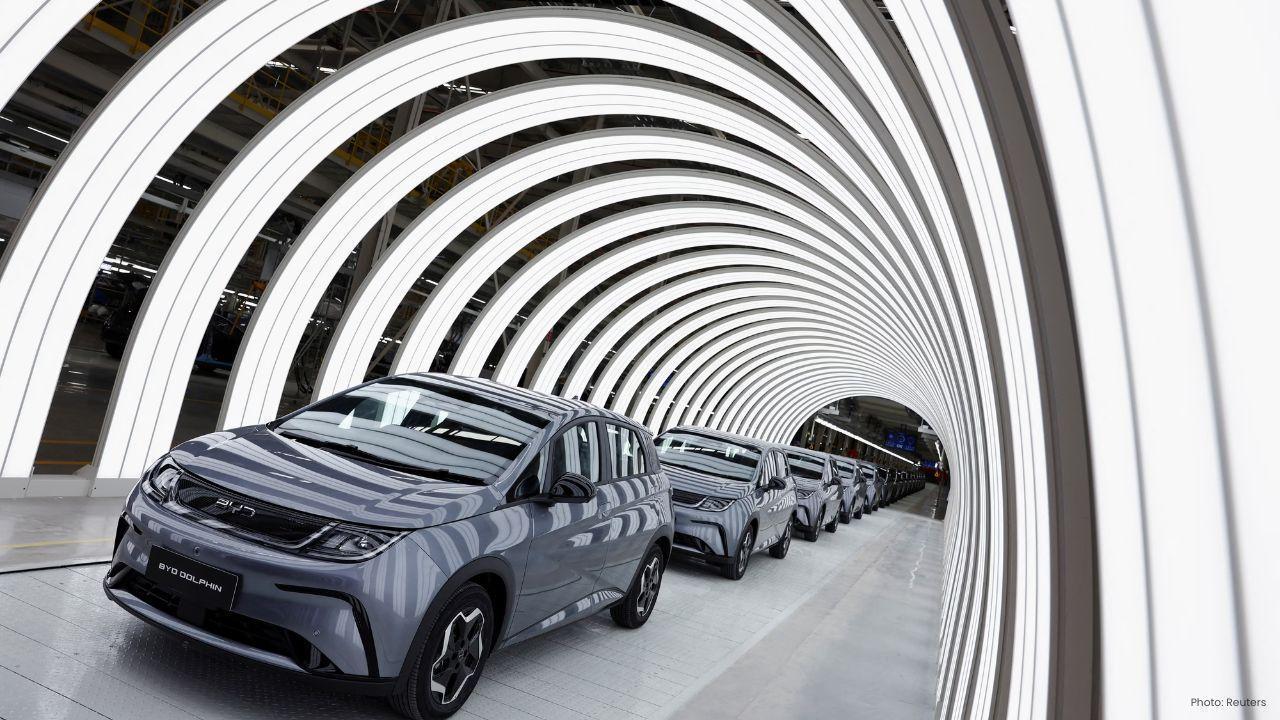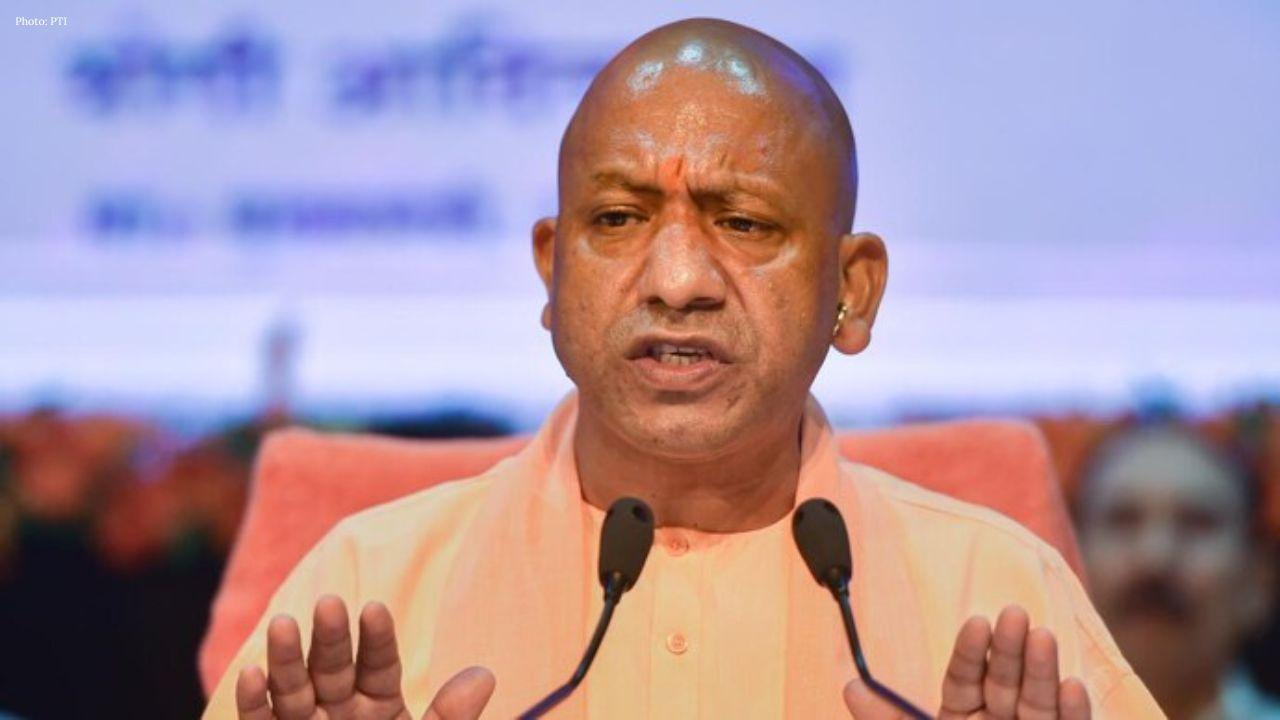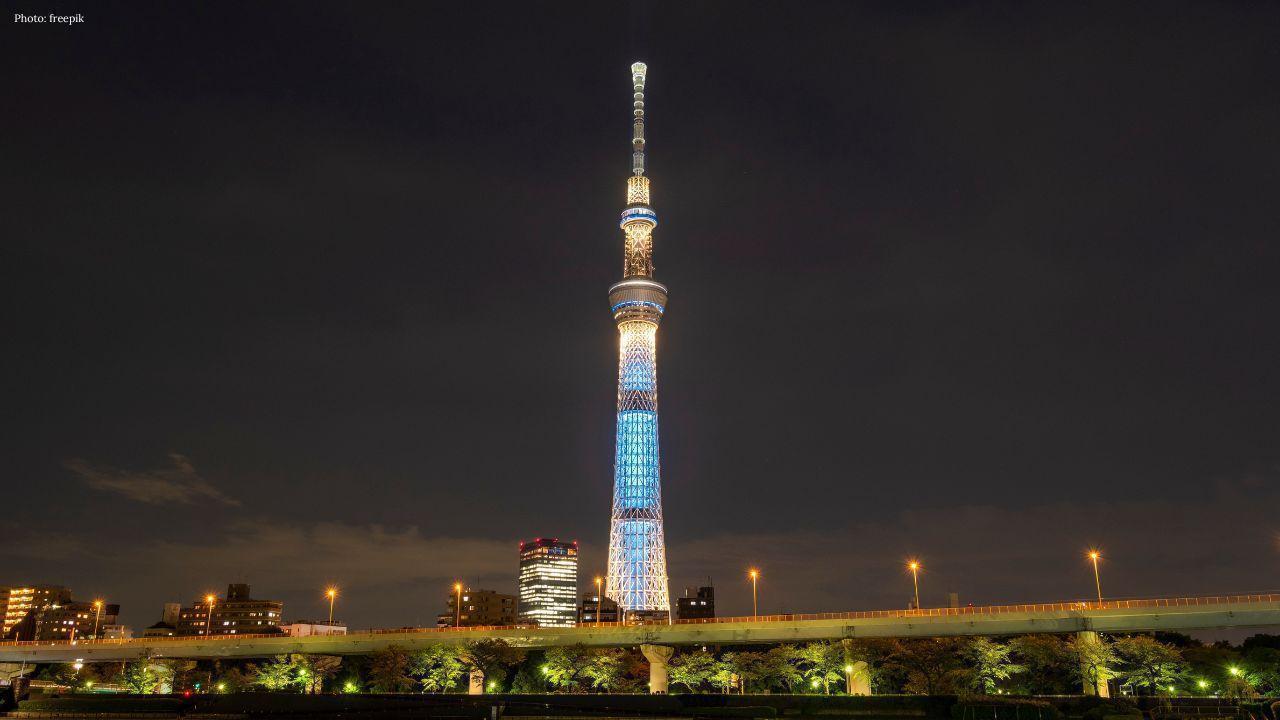You have not yet added any article to your bookmarks!

Join 10k+ people to get notified about new posts, news and tips.
Do not worry we don't spam!

Post by : Meena Ariff
In a surprising turn of events, Sri Lankan authorities have seized more than 1,000 electric vehicles manufactured by the Chinese automaker BYD. The seizure took place at the Colombo Port after customs officers noticed a serious mismatch between the declared engine power and the actual engine specifications of the imported vehicles. This action has triggered a massive investigation, raising questions about import practices, vehicle standards, and buyer trust.
Why Were the Cars Seized?
The Sri Lanka Customs Department took the action after finding that the power output of the BYD Atto 3 cars was incorrectly reported. The importers had stated that the engine power was 100 kilowatts (kW), but investigations showed that the actual power was 150 kW. This 50% difference raised red flags, leading officials to suspect that the lower figure was declared to reduce taxes.
According to Sri Lankan vehicle import laws, the tax amount depends heavily on the engine capacity or electric motor power. By showing lower engine power, importers can pay less in taxes. Customs officials now believe that this may have been an intentional attempt to mislead the system and pay less duty.
Where Are the Cars Now?
All the seized BYD cars are currently being held at the Colombo Port. This includes vehicles already ordered by customers who are now left uncertain about when they will receive their cars. Many buyers had already made full or partial payments and were expecting delivery in the coming weeks. Now, they are confused and disappointed by the delay and legal trouble surrounding their cars.
What Is the Government Saying?
Government authorities are taking the issue seriously. A full investigation has been launched to find out who was responsible for declaring the wrong engine power. Officials are trying to determine whether the mistake came from the importer, a middle agent, or was a factory-related issue.
Sri Lanka’s State Minister of Finance stated that this is not just a simple paperwork mistake — it’s a serious issue that affects national revenue and trust in the import system. He added that those responsible will face strong legal action if found guilty.
What Is BYD’s Response?
So far, there has been no direct statement from BYD’s headquarters. However, sources suggest that the cars being imported into Sri Lanka may be different from those sold in other countries. This raises a new question: were the vehicles specifically modified or labeled for lower power just for tax purposes in certain regions?
Some car experts argue that BYD is one of the most advanced electric car makers in the world and would not risk its reputation with incorrect technical data. Still, the investigation is ongoing and all possibilities are being considered.
How Are Buyers Affected?
For people who booked the BYD Atto 3, this news has brought only confusion and stress. Many customers had placed their trust in this new electric vehicle, which is known for its stylish design, high performance, and eco-friendliness. Now, with the vehicles under customs hold, they don’t know when—or if—they will get their cars.
Some customers have started demanding refunds, while others are asking the government to release the cars and let the buyers use them while the investigation continues. But so far, no such decision has been made.
What Happens Next?
Sri Lanka’s Customs Department is currently working with engineers and automotive experts to verify the power output of the seized vehicles. Based on the final findings, the government will decide whether the cars can be released or whether further legal action is needed.
At the same time, the government is reviewing its import procedures to prevent similar incidents in the future. New guidelines may soon be introduced to ensure more accurate documentation and better inspection of imported vehicles, especially electric cars.
Why Is This Important?
This incident is not just about a batch of cars. It’s about fairness, trust, and national law. It shows how wrong information on paper can affect buyers, government revenue, and international relations. It’s a reminder that technology must always be matched with honesty.
Electric vehicles are the future of transport, and Sri Lanka, like many other countries, is encouraging people to switch to clean-energy cars. But if such disputes continue, it could damage the growth of electric vehicles and the trust people have in them.
A Wake-Up Call for Everyone
The seizure of more than 1,000 BYD cars is a strong message that rules must be followed and transparency is key in international trade. As the investigation continues, both the government and the public are watching closely. Buyers want answers, the nation wants justice, and the world is learning a lesson about how small mistakes—or big lies—can lead to major consequences.










India Says J&K Budget Exceeds Pakistan’s IMF Bailout
India slammed Pakistan at UNHRC, stating J&K’s development budget exceeds Pakistan’s IMF bailout and

UP CM Holds Talks With Ex Japan Economy Minister in Tokyo
Yogi Adityanath met former Japan economy minister Nishimura Yasutoshi in Tokyo to boost UP-Japan coo

Hiroshima Teacher Arrested for Alleged Sexual Assault of Minor
A 37-year-old high school teacher in Hiroshima was arrested on suspicion of sexually assaulting a te

Tokyo Skytree Reopens After Elevator Malfunction Suspension
Tokyo Skytree resumed operations after a three-day closure caused by an elevator failure that trappe

Skiers Rescue Man Buried Under Snow at California Resort
A dramatic rescue at Palisades Tahoe shows two skiers saving a man suffocating under deep snow durin

Sri Lanka Ex-Intel Chief Arrested Over Easter Attacks
Former SIS Chief Suresh Sallay arrested by CID in connection with the 2019 Easter Sunday bombings th